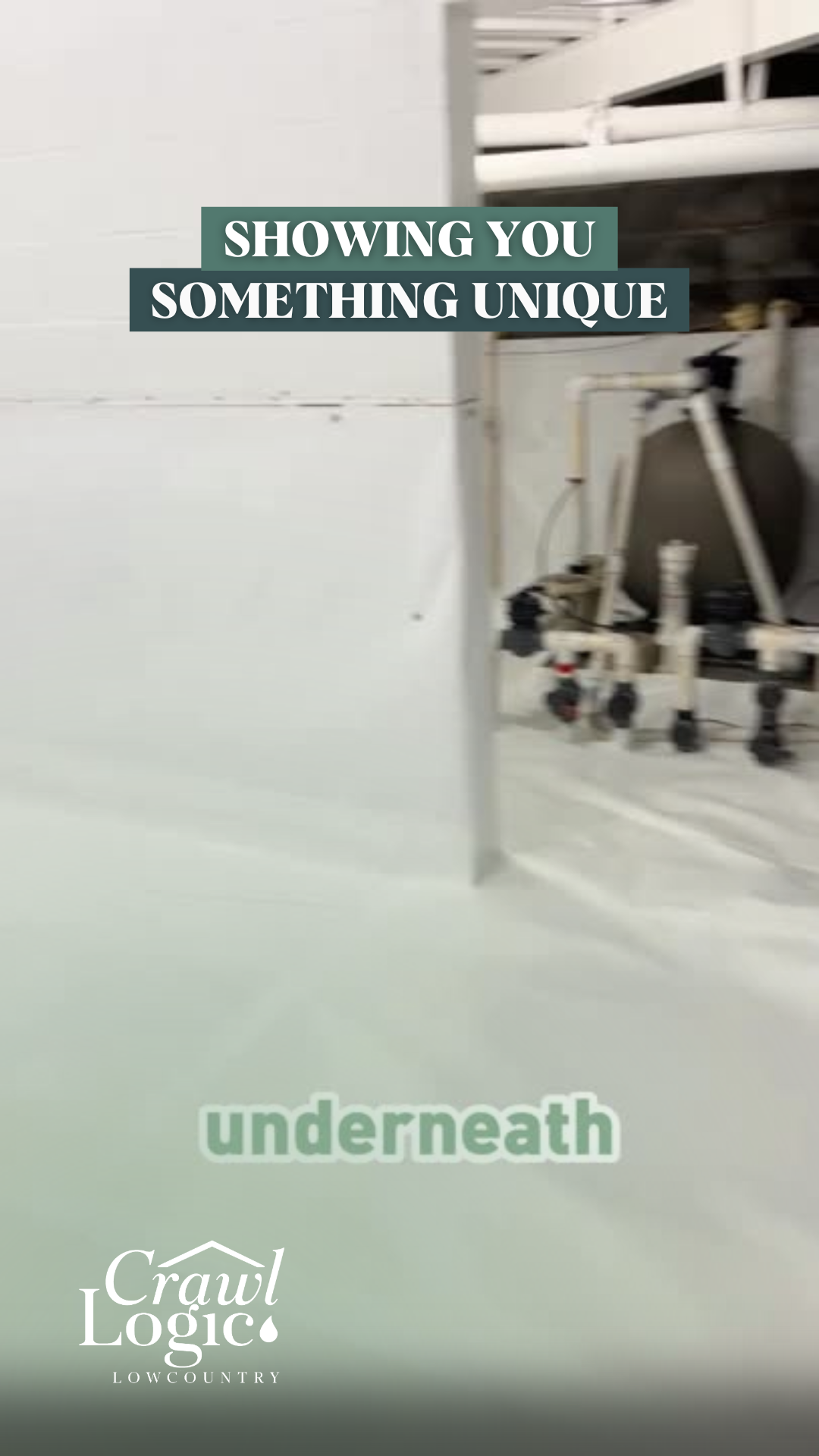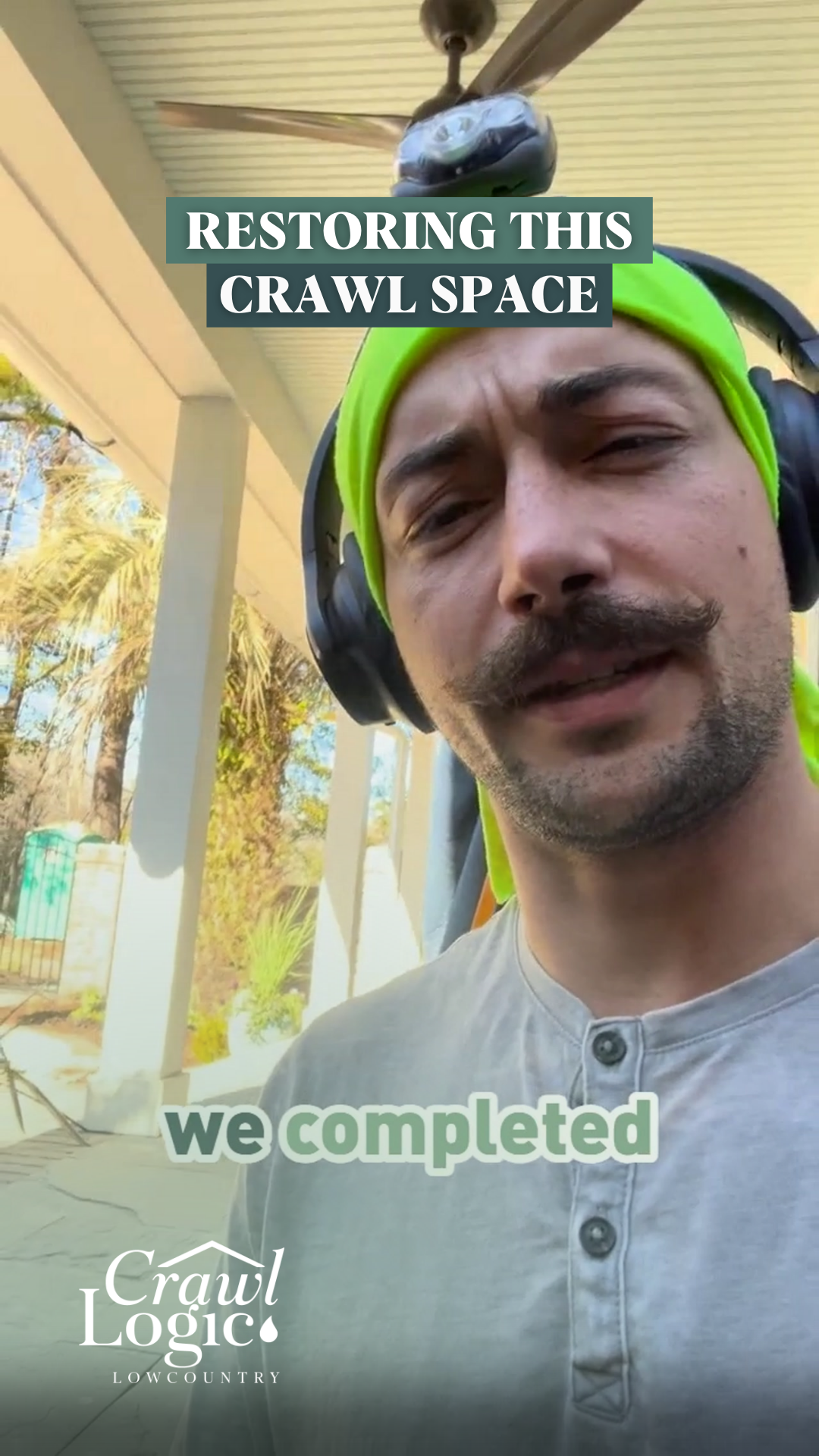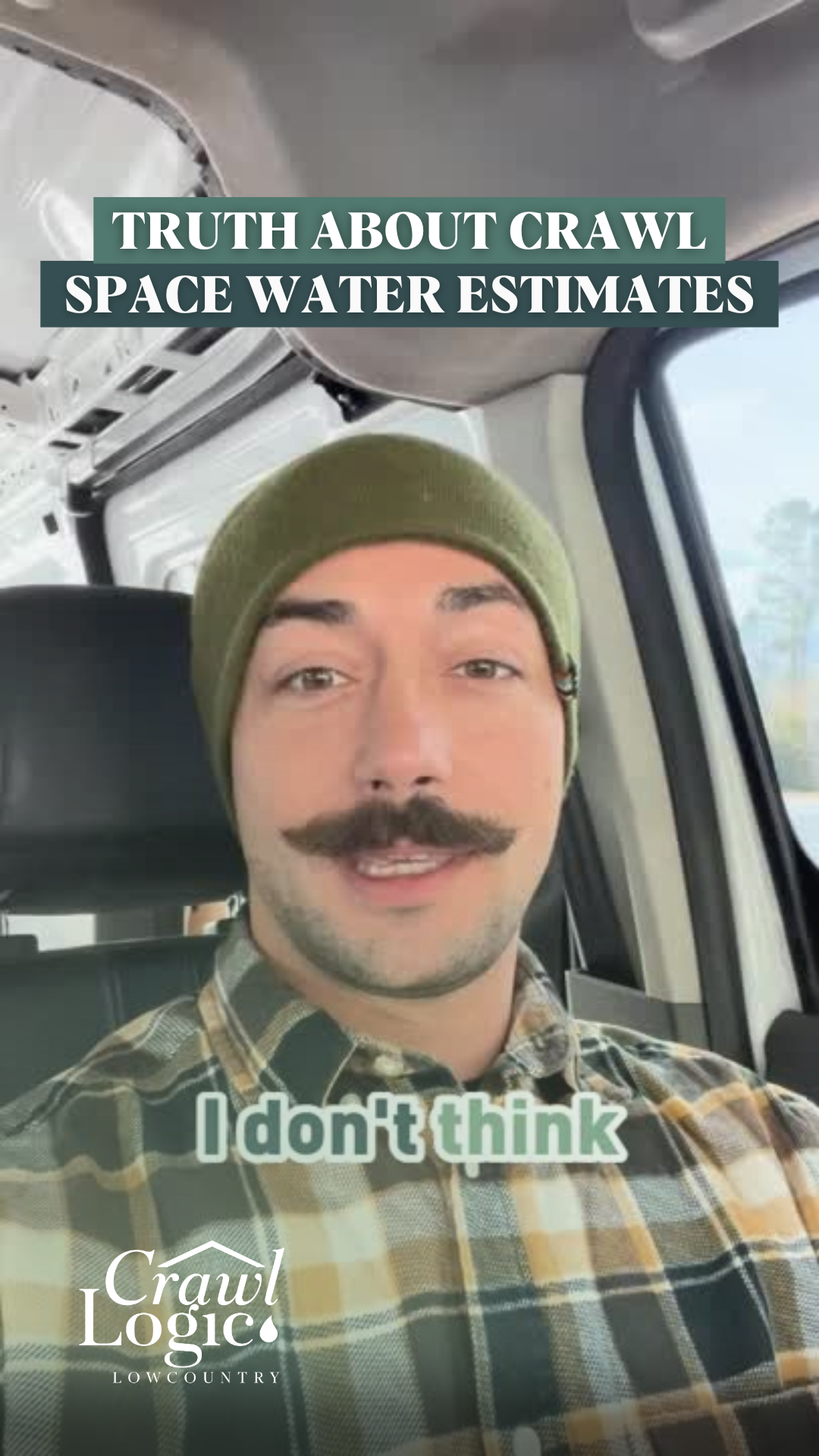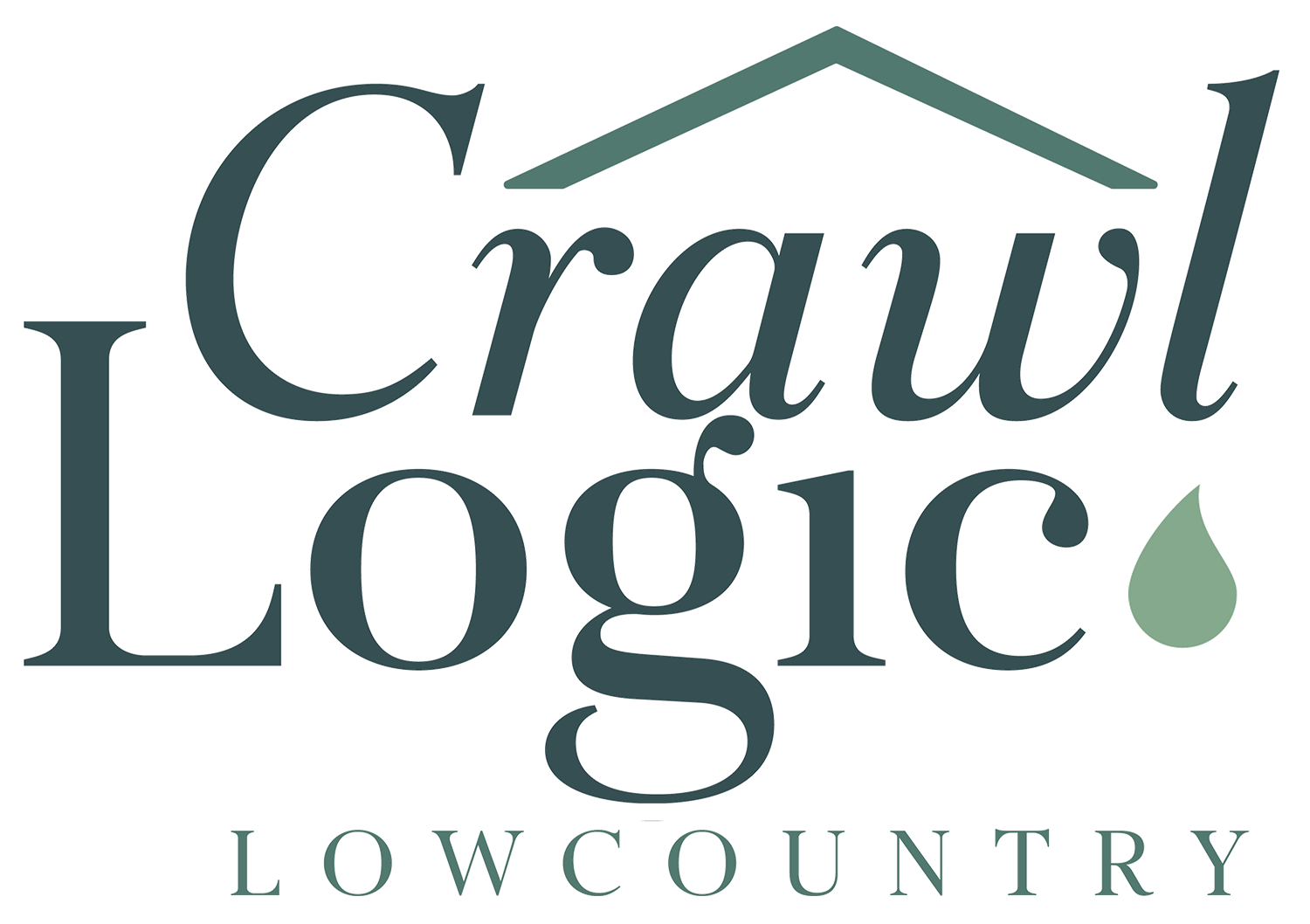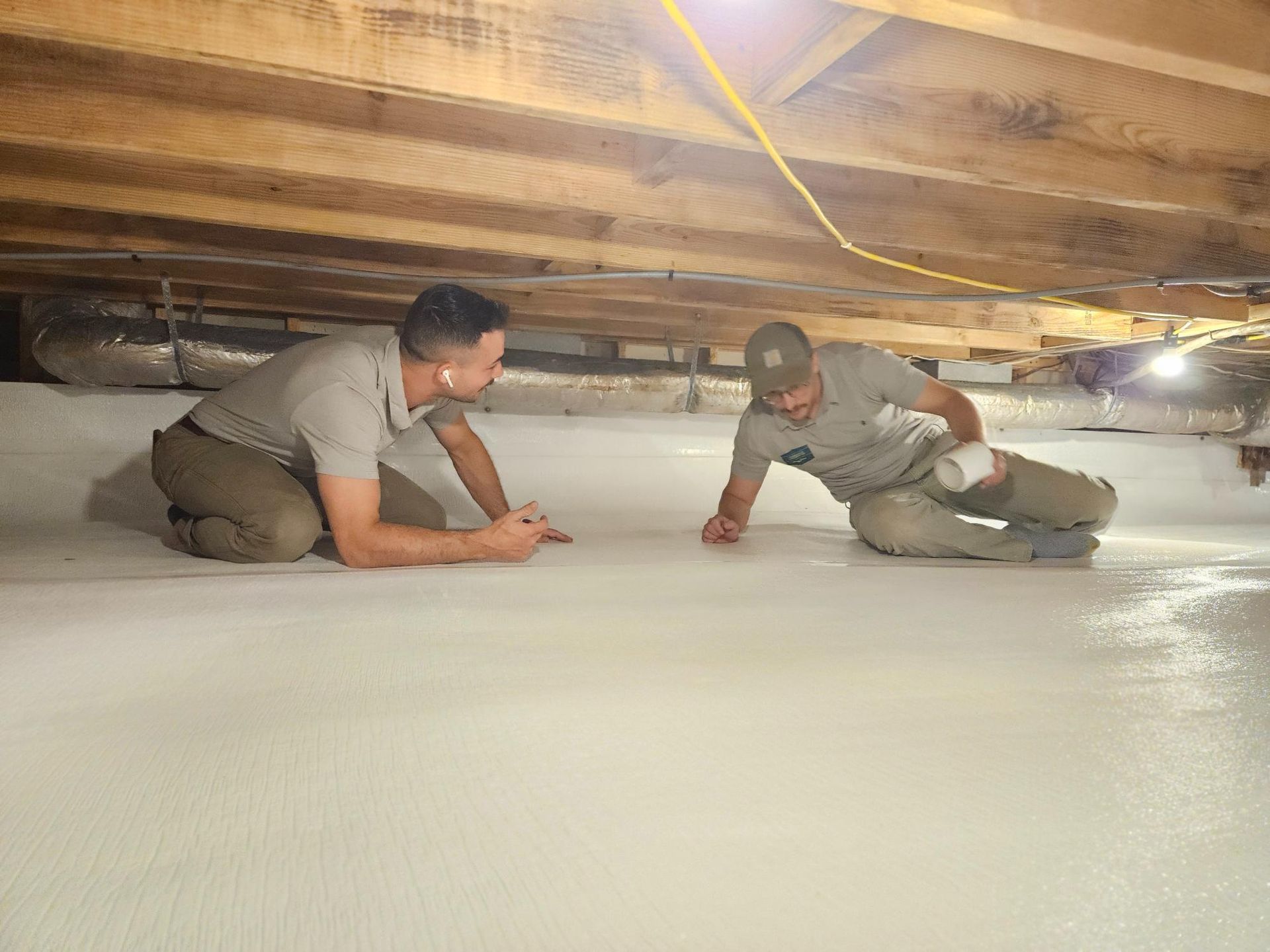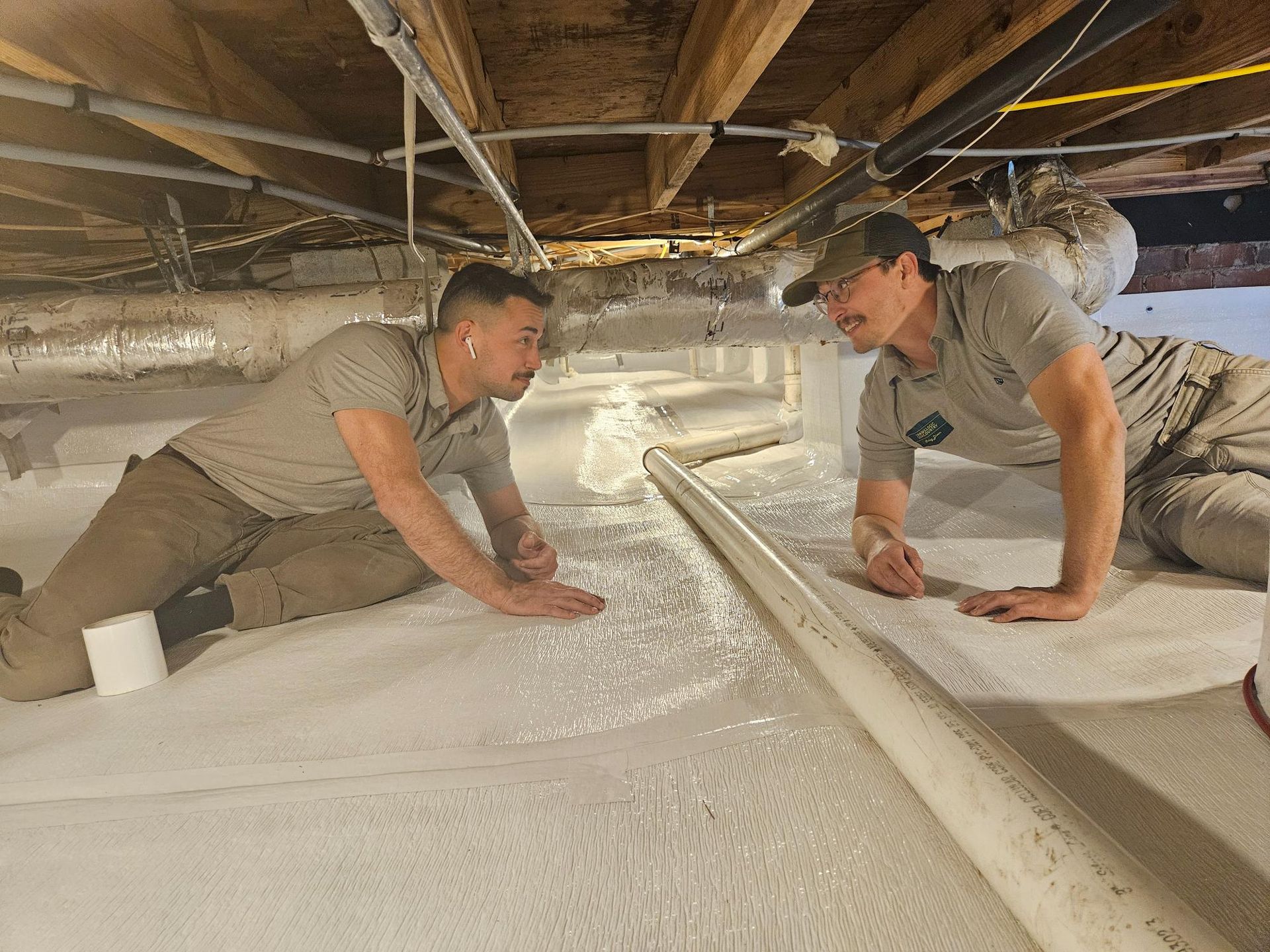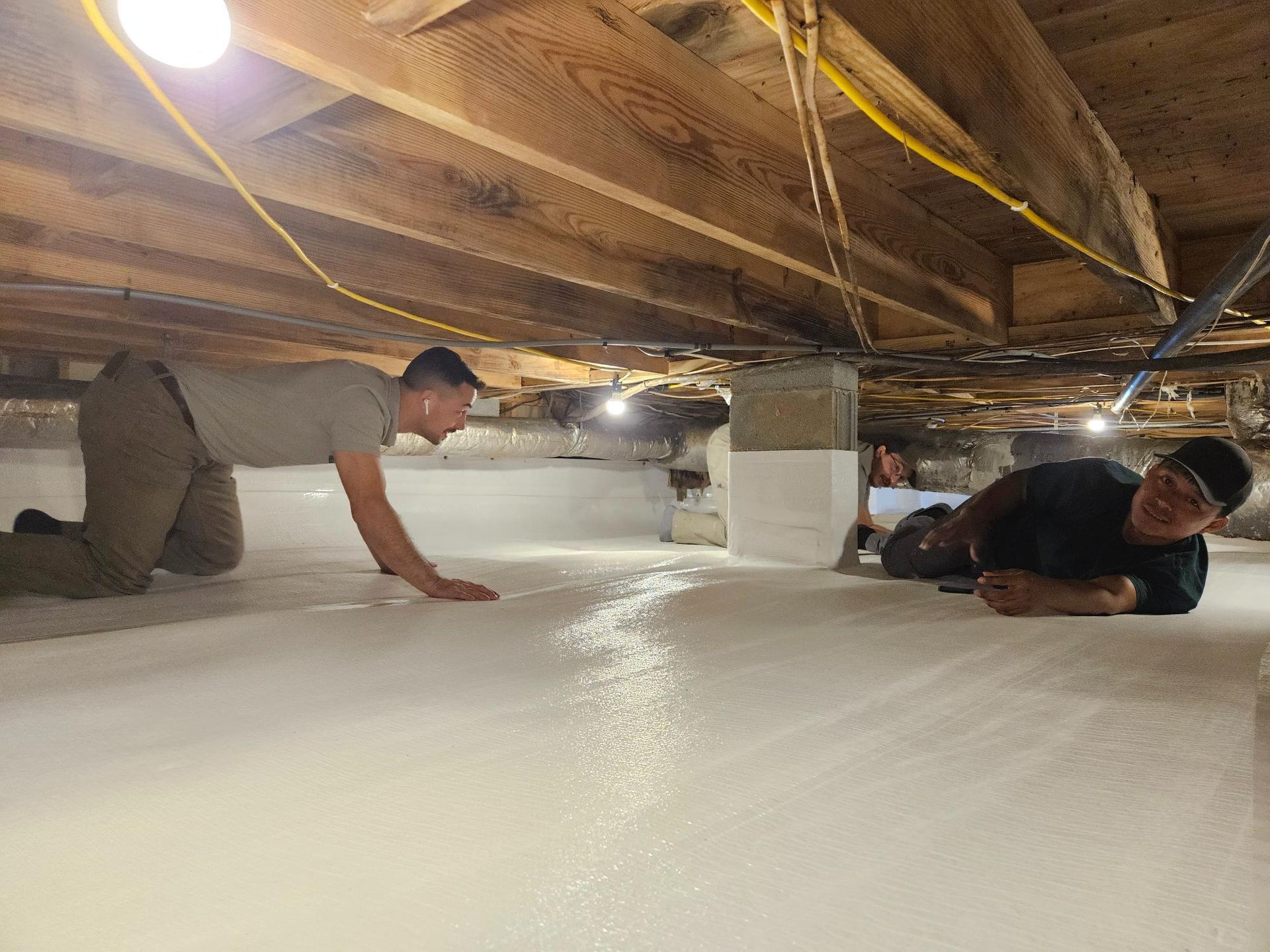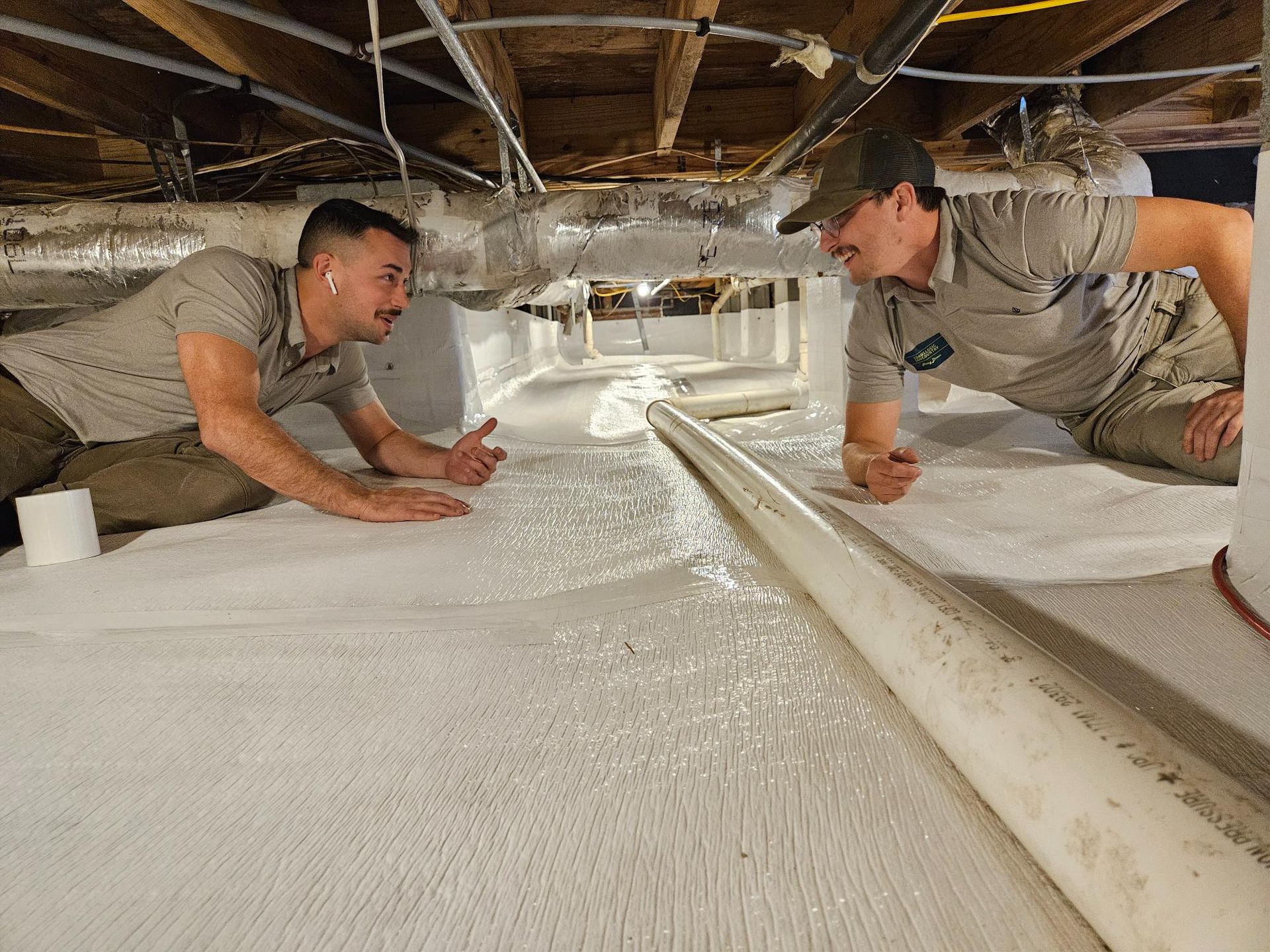Why We Turn Off the Lights: A Charleston Contractor's Secret to Perfect Crawl Space Sealing
Crawl Logic Lowcountry
Mold Doesn’t Care What You Paid
POOR SEALING INVITES BIG PROBLEMS—WE DO IT DIFFERENTLY
I just left a job site on James Island where four homeowners had to completely rip out their floors due to mold damage.
It's the kind of expensive, disruptive repair that keeps me up at night - because it's almost always preventable.
That's why we do things differently at every crawl space we work on, including one extra step that most contractors skip.
In Charleston's challenging climate, there's no room for almost-good-enough when it comes to crawl space sealing.
Every tiny gap, every small oversight, becomes an invitation for our infamous Lowcountry humidity to cause problems.
Welcome to Crawl Logic Lowcountry!
The Hidden Challenge
Here's something most people don't know: standard crawl space inspections often miss critical problems. Why? Because artificial light - whether it's from work lights, flashlights, or even sunlight through vents - can hide small gaps in your crawl space sealing.
These gaps might seem insignificant at first. A pinhole here, a tiny crack there. But in our coastal climate, even the smallest opening can let in enough moisture to:
- Override your dehumidifier
- Create perfect conditions for mold
- Lead to expensive floor damage
- Waste energy every single day
Most contractors walk through with bright lights, check the obvious spots, and call it done. But that's how small problems turn into big repairs - like the floor replacement we just handled on James Island.
The Dark Room Test
When we finish a crawl space project, we do something that might seem unusual: we turn off every light. Complete darkness becomes our most powerful inspection tool. In the dark, even the tiniest beam of daylight becomes impossible to miss. It's like finding a flashlight beam cutting through a pitch-black room.
This isn't just about being thorough - it's about making sure every dollar you spend on crawl space encapsulation actually protects your home. Our James Island customers know firsthand how expensive it is when sealing isn't perfect.
Beyond the Basic Inspection
You might wonder why other companies don't do this simple test. Sometimes it's rushing to get to the next job. Sometimes it's not understanding how small gaps affect the whole system. But in Charleston's humidity, these oversights add up fast.
Think about it this way: your crawl space system is like a sealed container. Even a small hole in a container lets everything leak out. The same goes for your crawl space - one tiny gap can compromise the entire encapsulation system:
- Your dehumidifier works harder than it should
- Moisture sneaks in where you can't see it
- Energy bills climb higher each month
- Problems develop behind your walls and under your floors
In the Lowcountry, where humidity is a year-round challenge, these small gaps aren't just inefficient - they're expensive. That's why we take the extra time to check every inch, even if it means working in the dark.
What Homeowners Should Know
If you're investing in crawl space encapsulation, you deserve work that's done right the first time. Here's what to watch for:
- Ask your contractor about their final inspection process
- Be wary of rush jobs - thorough sealing takes time
- Look for companies that focus on prevention, not just repairs
- Make sure they understand Charleston's specific moisture challenges
The cost of cutting corners isn't just financial. Beyond the expense of replacing floors or fixing mold damage, there's the disruption to your daily life, the stress of unexpected repairs, and the worry about what else might be wrong under your home.
Our Promise to Clients
At Crawl Logic Lowcountry, we believe in doing things right, even when that means taking extra steps that others skip.
Our dark room inspection is just one example of how we make sure your crawl space stays dry and protected year-round.
